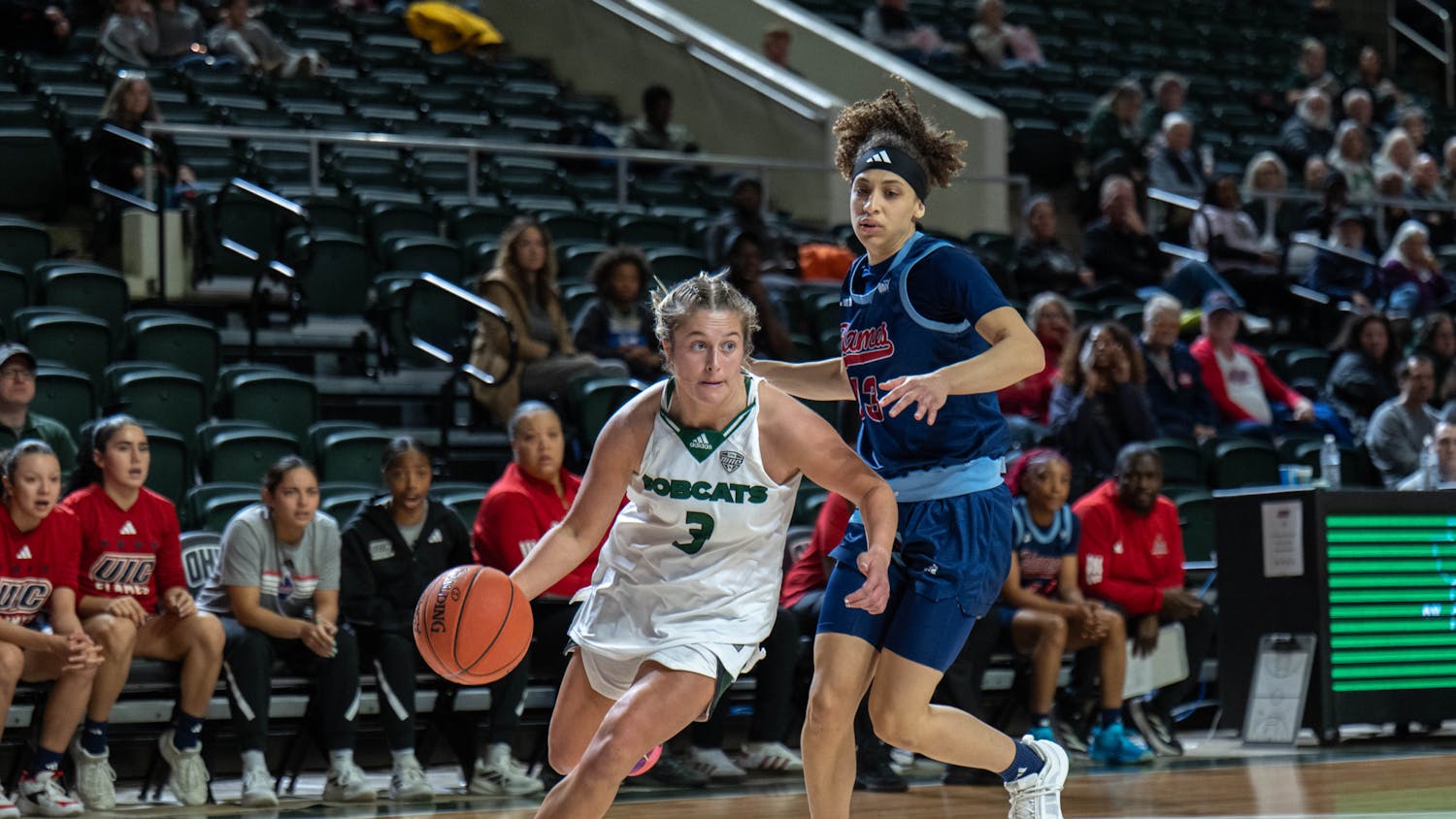The 2016 presidential election is attracting attention across the globe. Despite the inability of many to vote, international students at Ohio University are eager to express their views on the Oval Office and its future occupant.
During the 2014-15 academic year, the growth rate of international students in the United States increased by 10 percent, according to the Institute of International Education. A survey conducted by OU found 1,740 international students enrolled in the university during the 2015 fall semester. This growth establishes the U.S. as one of the most popular destinations for international students to seek education.
Although the number of international students continues to grow into a sizable presence in the U.S., many are not eligible to vote in the country’s elections, unless they are already U.S. citizens. An Omani student, Sarah Al-harrasi, said the U.S. is a new home for international students, so naturally they are closely following the 2016 U.S. presidential race.
According to Baemnet Amare, an Ethiopian international student, the U.S. wields much of its power through its pop culture, which is often left relatively unrestricted compared to other countries. He said American ideologies seep into the “workforce and eventually politics,” affecting individual lives.
“America is the cool kid in high school that everybody wants to know every detail about,” Amare said. “It’s unavoidable.”
According to a poll published by The New York Times on Sunday, Hillary Clinton, the Democratic nominee, is neck-and-neck with Republican nominee Donald Trump. Clinton is leading at 45 percent, compared to Trump at 40 percent.
Some international students, such as Abhilash Raichur, an Indian graduate student, are less aware of the political stance of Clinton compared to Trump, who has dominated TV screens with his controversial claims and rhetoric.
“Honestly speaking, I don’t know much about her,” Raichur, who is studying computer science, said, referring to Clinton. “But she, at least to me, seems better than Trump.”
Due to Clinton’s previous scandals, Amare is critical of her prowess as an administrator.
“With (Hillary Clinton), I see empty promises because she comes off as fickle,” Amare said, referring to the controversy surrounding her 2014 email leak.
Trump established his presence across various media platforms, from silver screens to newspaper headlines. Raichur, who said he actively follows the current election coverage, questions Trump’s communication skills.
“To me he doesn’t seem like someone who has the qualities of being a president,” Raichur said.
Al-harrasi, a junior studying journalism, said she is afraid of the rhetoric about foreigners, especially Muslims, that has developed with the election campaigns. A student ambassador for Oman under the Ministry of Education in Oman, she helps Omani students who are deciding to pursue higher education in the U.S.
“The question that I most get is ‘Are we going to be negatively affected by what’s going on?’ ” Al-harrasi said. “And honestly I don’t know what to tell them.”
While Al-harrasi gears up for the upcoming presidential election along with the rest of the country, she said the international students collectively acknowledge the fact that the United States is a diverse pool of opinions, and the presidential election is not the absolute determinant of the country’s attitudes toward the rest of the world. She said most people outside the U.S. have faith in this camaraderie, but the candidacy of Trump has shaken their beliefs.
“Why is he even winning?” Al-harrasi said. “There is definitely a group of people that are happy with him, and that's scary.”
While Amare said he believes the president does not possess supreme power, he is aware that the position holds significant value.
“The U.S. is seen as the world’s police, a (global) government of sorts,” Al-harrasi said. “It is important that people take that into consideration before voting.”
Correction: A previous version of the photo caption incorrectly spelled Sarah Al-harrasi's name. The caption has been updated to show the most accurate information.






